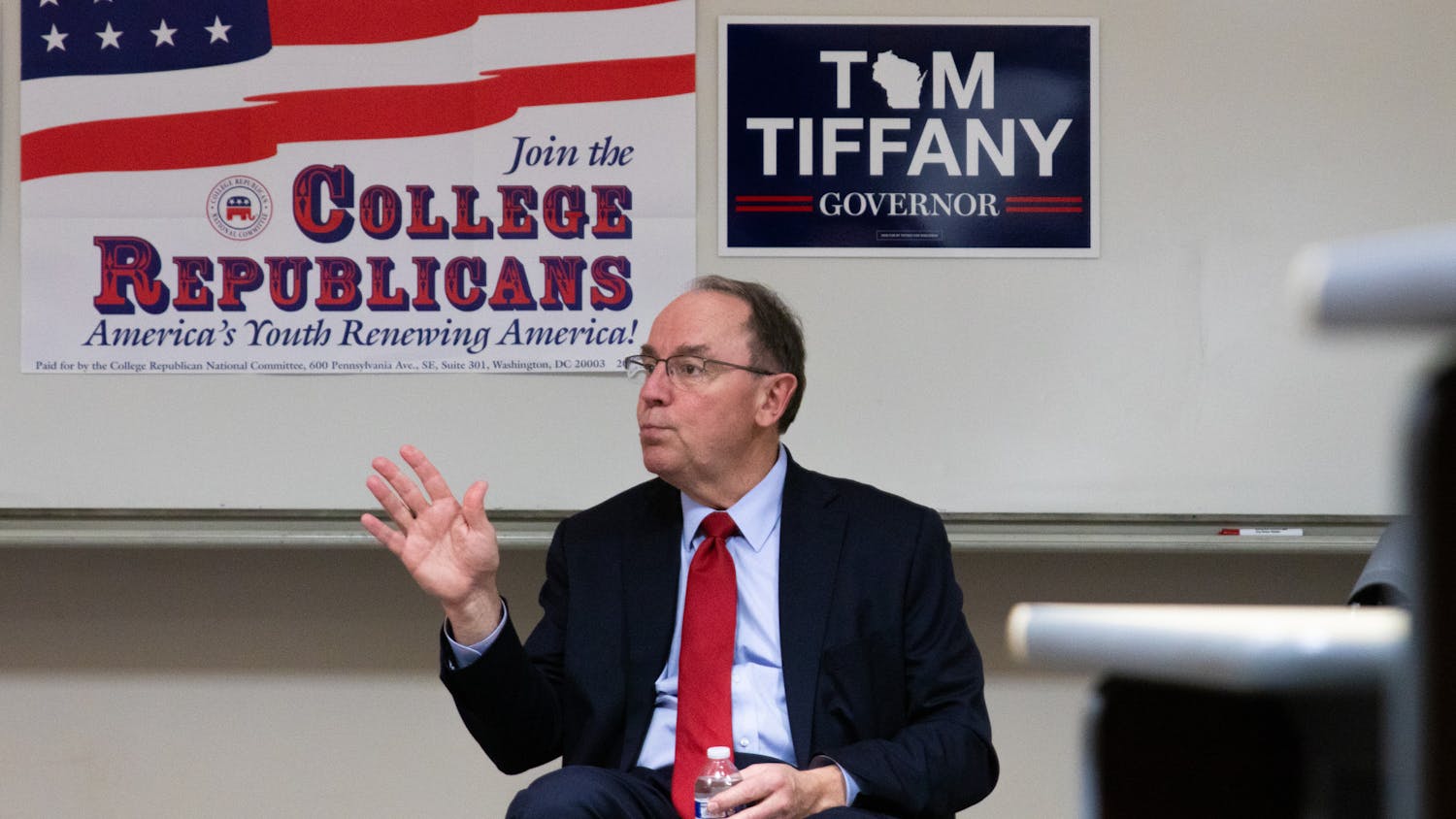It has been said that the truest measure of a democracy is how it responds to dissent. Following the events in Miami last week, the questions that ought to be on all our lips are not only those about so-called \free trade"" and its effects but also those about the use of state-sponsored violence and its implications for a democratic society.
The violence on the streets of Miami, the elitist negotiations taking place in the Free Trade Area of the Americas ministerial inside and the lack of two-sided, nuanced reporting should concern all who value freedom of assembly and non-violence.
Last week one segment of our society was paid to respond to the dissent of another part with brutality. Police used tasers, batons, sticks, guns, boots, pepper spray and tear gas against citizens who had gathered to protest the FTAA. Over 250 people were arrested and hundreds more sustained physical injuries, including facial lacerations and collapsed knees. Police targeted medics and legal observers, and even used pepper spray inside a street clinic.
The Miami Police Department drastically overreacted to the presence of protesters. There were over 2500 police from over 40 agencies, including the Fish and Wildlife Service, some working 14-hour shifts. Police fired rubber bullets at close range into crowds-rubber bullets are intended to be fired below the waist and into the ground. They arrested citizens arbitrarily, on non-existent charges as a fear tactic intended to intimidate others. Police Chief John Timmoney bragged, ""You can beat the rap but not the ride,"" meaning that people could not be charged with anything but they could still be kept in jail for several days. The massive police presence in Miami was funded by part of the $87 billion Iraqi reconstruction fund. In a sickening twist, the money tagged for ""building democracy in Iraq"" also funded the violent suppression of citizens' rights in the United States.
Protesters are not criminals, although the definition of who is a criminal in our society is also up for debate. They are citizens whose voices are not being heard.
The list of problems with the FTAA is long and varied and unites very diverse sections of society. The FTAA is intended to lower tariffs and other ""trade barriers,"" essentially creating-a ""free trade zone"" in all countries in Central and South America and the Caribbean with the exception of Cuba. The FTAA is an extension of the disastrous North American Free Trade Agreement that was negotiated in 1993 between Canada, the United States and Mexico. The results of the NAFTA agreement are illustrative of what FTAA has in store for working people.
Since the creation of NAFTA, more than 765,000 U.S. jobs have disappeared. In Mexico, manufacturing wages fell 21 percent from 1995 to 1999. Job loss is not the only problem-workers' rights are being undermined. According to a Cornell University study, two-thirds of manufacturing and communications companies faced with union-organizing campaigns threatened workers with moving their jobs abroad.
Several of the other major problems with the FTAA can be summed up into two categories: the prioritization of corporate rights over people's rights and the undemocratic and unaccountable nature of the negotiations and of international trade agreements and institutions in general. Under Chapter 11 of NAFTA, corporations are allowed to sue countries for compensation for anything they deem to be unprofitable, including general health, safety and labor laws. Chapter 11 lawsuits have already been used to repeal a Canadian law banning a chemical linked to nervous system damage. This type of clause not only undermines the basic social safety net but also puts poorer countries at a severe disadvantage-as cases can drag on and court fees are expensive. Chapter 11 and NAFTA in general have already had devastating environmental effects as environmental protections are considered ""trade barriers."" The environmental devastation in the maquiladora zones along the Mexico-U.S. border can offer a preview of what is to come if or when the FTAA is implemented.
The FTAA is undemocratic. Organized labor, human rights groups and environmental organizations have been systematically excluded from talks while corporate representatives are deeply involved in the shaping of the agreement. Currently, there is a process set up to take citizen input into account, however there is no mechanism for incorporating that input into the actual decision-making process. Essentially, all of civil society has been given nothing more than a suggestion box for an agreement that will have profound impacts on many aspects of life.
Those most adversely affected by the trade deals have no say in their construction-they are excluded from the negotiating table. People have taken to the streets and become ""protesters"" because they have no other forum for voicing dissent because there is no accountability. If there was any hope left that the political and corporate elites negotiating the FTAA would yet take citizen input into account it was dashed on the streets of Miami.
Those negotiating the FTAA are not accountable to the citizenry, yet they enjoy state resources and protections. Protests are an attempt not to throw back to days of mercantilism or economic protectionism, but to create awareness of the devastating effects the alternatives. Several alternative agendas for ""fair trade"" instead of free trade have been crafted and the ""Another World is Possible"" economic forum, organized to create ""fair trade"" agendas, are growing larger every year.
The excessive police violence against unarmed individuals and organizations is a sign of the rifts that are rapidly widening in our society; violence is never a sign of strength but rather a desperate attempt to hold on to power. Protests against the World Trade Organization, the World Bank, the International Monetary Fund and the Free Trade Area of the Americas are illustrative of the economic elites profound misjudgment of the direction of global capitalism and its effects on the discontented citizenry who will not be ignored any longer.





